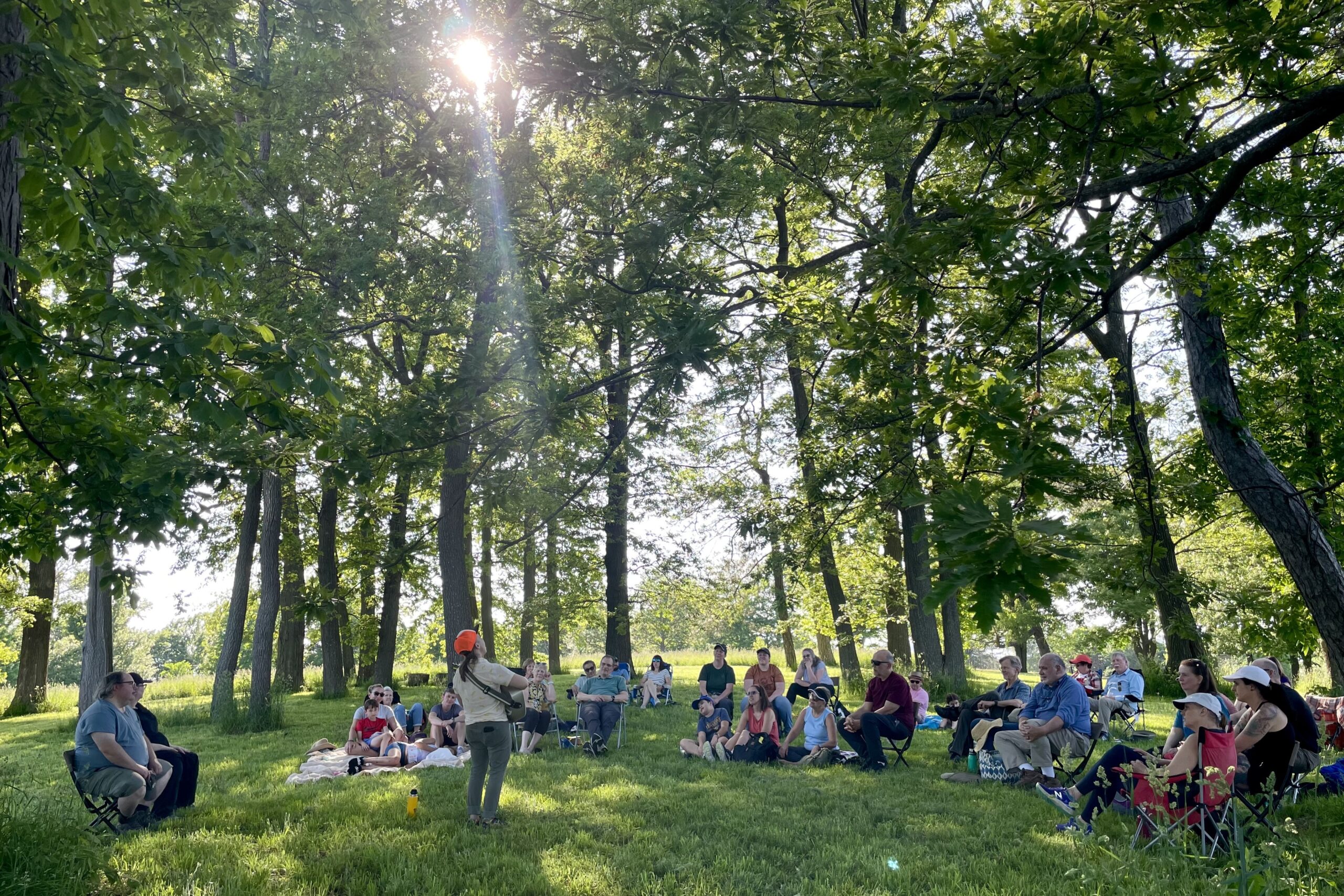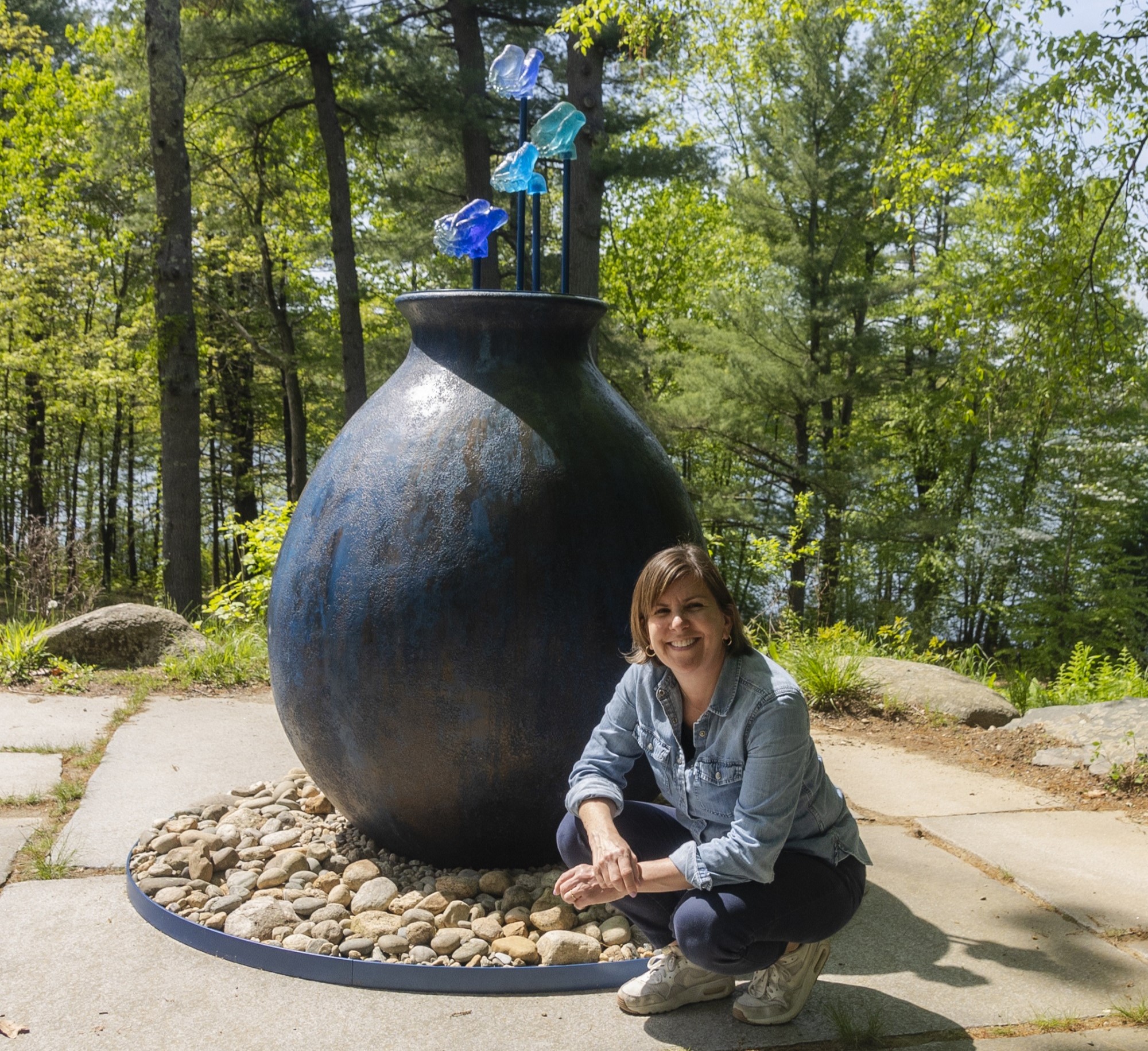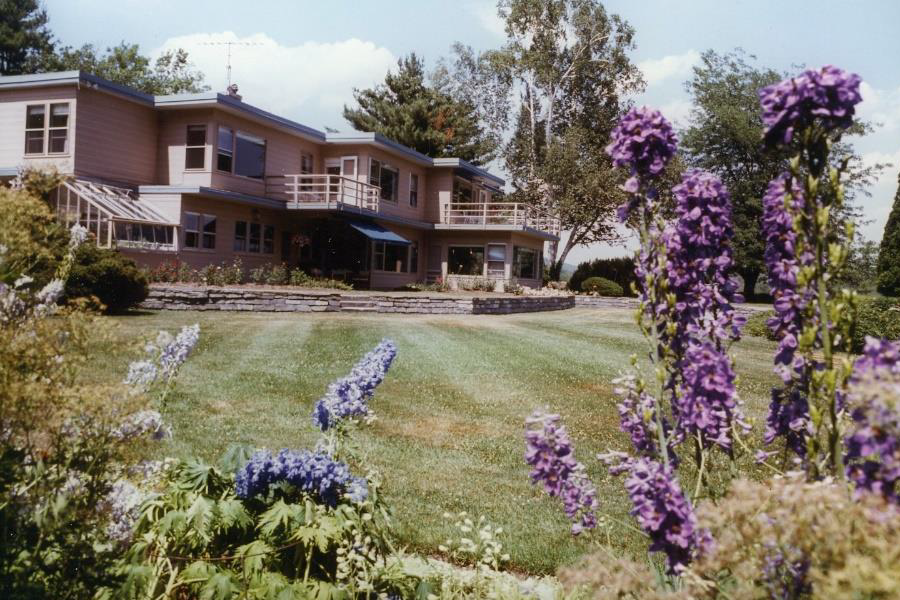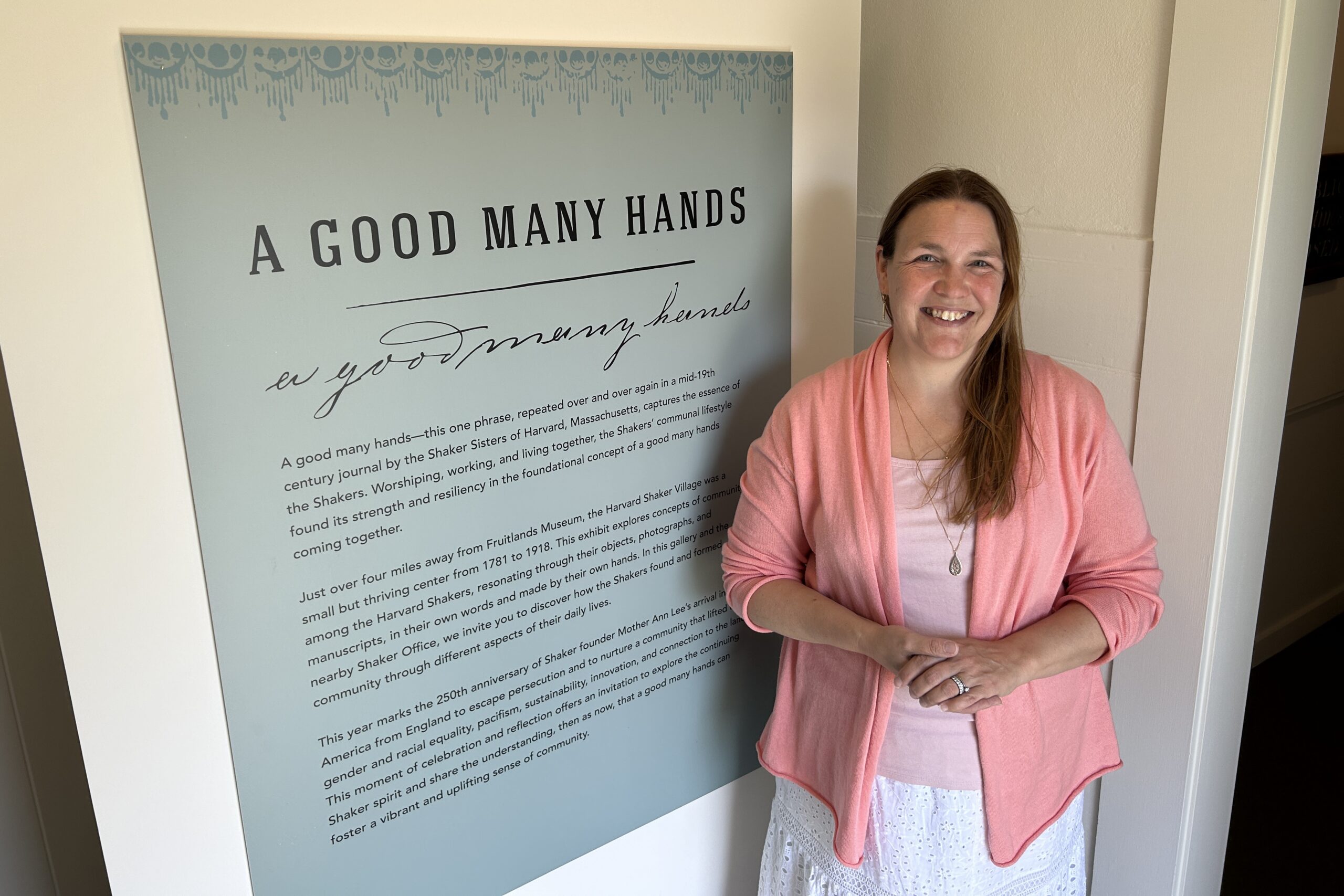On Saturday, Nov. 12th, 2022, Castle Hill was honored to be the host site for the American Country House Conference, an annual conference of lectures and tours put on by the American Country House Foundation (ACHF) in New York. This year’s theme, “From Puritans to Brahmins,” explored various country houses in Massachusetts, of which Castle Hill is a standout example.
In chronological order, the lectures began with a talk by ACHF president T.R. Ravella-Hamilton about the Royall House and Slave Quarters, the late 17th/early 18th century country estate of sugar planter and slave trader Isaac Royall, located in Medford. Discussion not only addressed the Royall mansion but also the rare, extant freestanding quarters where enslaved people lived and worked, helping to tell their intertwined stories. Next, we heard from Historic New England curator Camille Arbogast about the Codman Estate in Lincoln, the 18th century ancestral home of architect and influential interior designer Ogden Codman Jr. (1863-1951). The morning concluded with a fascinating and comprehensive history of Cultural Resource Law by Gillian Bearns Esq., who serves as a land use and cultural resource attorney based in Charlottesville, VA.
The Trustees was well represented in the afternoon, beginning with Senior Curator Christie Jackson’s lecture, “Quietly Hidden: A Story of Architectural Salvage and Discovered Craftsmanship at Long Hill.” Long Hill was the Beverly summer home of Atlantic Monthly editor Ellery Sedgwick and his family from 1916 until it was bequeathed to The Trustees in 1979. Christie shared her groundbreaking research in Charleston, S.C., where she discovered that the Federal-era ornamental carvings salvaged and used in the Sedgwick’s 1921 house were created in part by highly skilled enslaved craftsmen. This story is now prominently featured in our interpretation in the house at Long Hill.
We then heard from John Leysath, curator at Hammond Castle, who shared the history of this iconic Gloucester summer home of the inventor John Hays Hammond Jr., between 1926-1929. Another must-see on the North Shore.
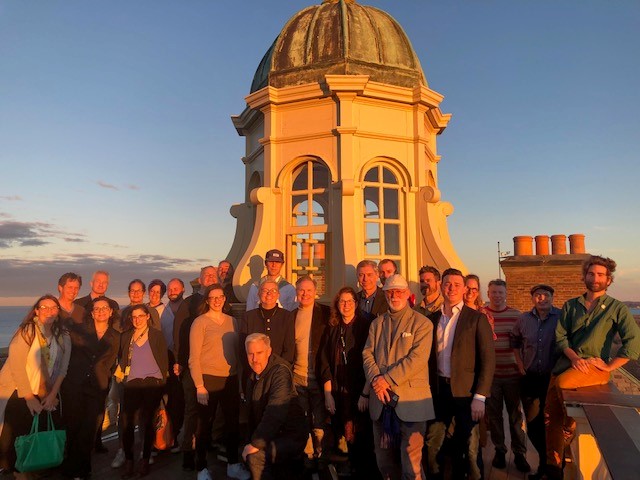
For the final talk, I spoke on “The Manor Reborn: Castle Hill’s English Country House for an American Industrialist”, which introduced our visitors to the Great House as part of the Cranes’ American Country Place Era estate and The Trustees’ efforts to restore and preserve it as a National Historic Landmark. An architecture-focused group, they loved learning about this 1924-1928 Stuart-style house designed by Chicago architect David Adler for the family of plumbing magnate Richard T. Crane, Jr. We ended the day with tours of Adler’s eclectic interiors, beginning with sunset on the roof – a “wow” factor every time. It was a lot of fun to tour the museum rooms with such an enthusiastic audience, who wanted to know about every detail. I suspect that many will return soon.
At the end of the day, the ACHF conference proved to be a great educational collaboration between The Trustees and the American Country House Foundation. This conference also brought a whole new audience to Castle Hill, with many attending from New York City and the Hudson River Valley. We met architectural scholars, antique dealers, conservators, and well-known architectural photographers, as well as some of our longtime Trustees’ supporters. It was rewarding to see so many of the attendees’ photos on Instagram (including those of photographer Pieter Esthersohn, below) and it appears the word is now out that architecture buffs must get to the Crane Estate!
For more information on this organization, please visit the website for the American Country House Foundation at https://www.americancountryhousefoundation.org.
